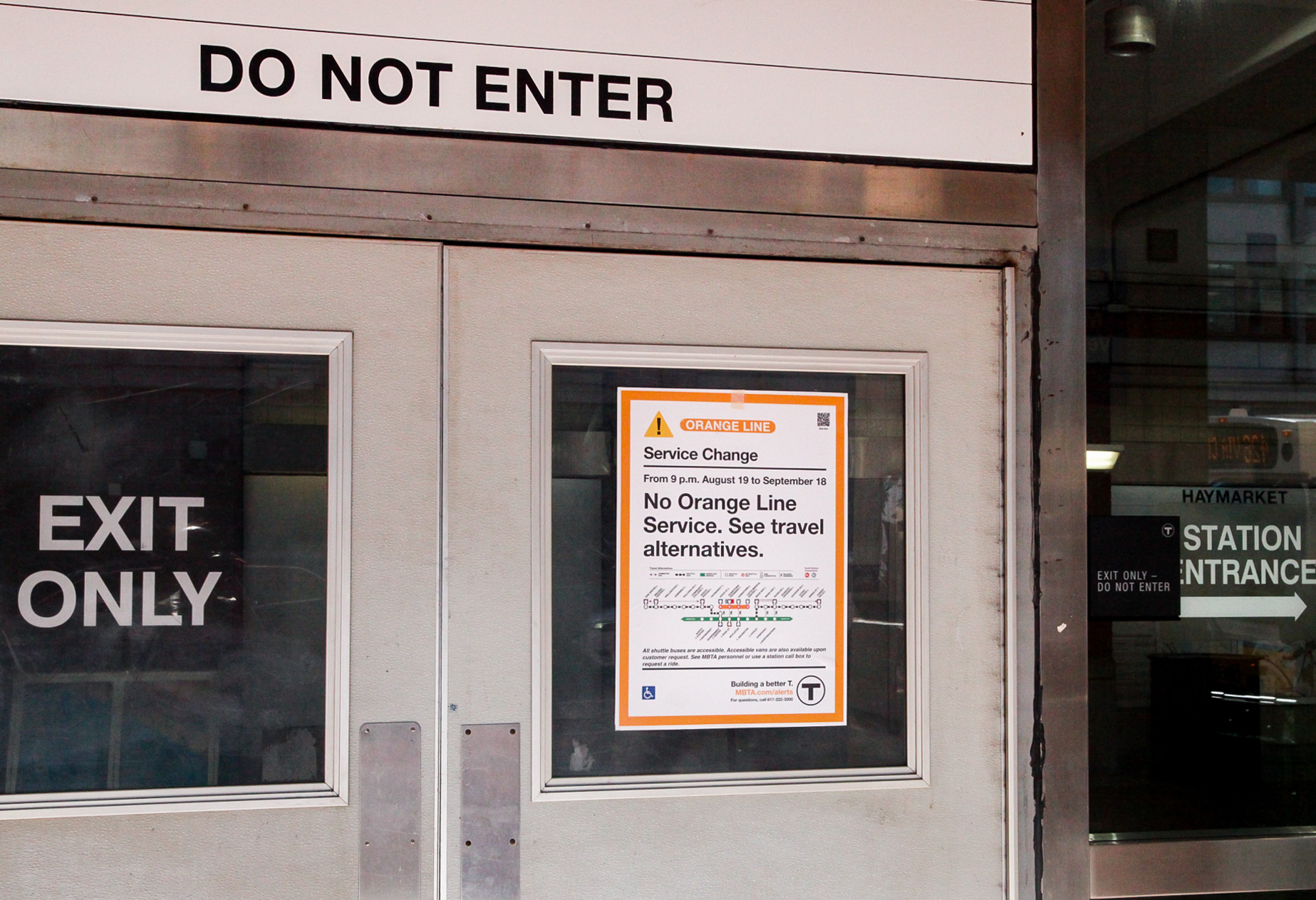
The month-long shutdown of the entire Orange Line of the MBTA — an organization overwhelmed with safety issues, overworked staff and aging infrastructure — is undoubtedly needed. But it coincides with the beginning of the school year in college town Boston causes inconvenience for commuters, including Boston University students.
The City of Boston has replaced the Orange Line with shuttle buses and have made BlueBikes and some commuter trains free for the duration of the Orange Line’s one-month shutdown, which is expected to end Sept. 18.
Elizangi Araujo, a junior in the College of Engineering, is a commuter who normally drives to school and uses the Flex Parking permit — a parking permit that allows students to only pay for the days they park on campus — but said her car is currently in the repair shop.
Although Araujo lives in Hyde Park, a Boston neighborhood, she said she’s trying to avoid taking the MBTA, which she said is a “hot mess” right now.
“Yesterday, I got a ride which was convenient for me … I had to Lyft today,” Araujo said. “Tomorrow, I have no idea how I’m getting here, to be honest.”
Among BU students, sales for the MBTA Semester Passes — an unlimited pass at a discounted price for students — were down 23% this semester compared to last Fall, according to an email from Director of BU Parking and Transportation Services Billy Hajjar.
However, Hajjar wrote, he thinks this is because of increased efforts to “better inform students about whether or not a Semester Pass is a good value for them,” rather than the MBTA shutdowns.
“With the MBTA shutdowns only affecting about 9 school days, I don’t foresee the shutdowns having much to do with this change in student behavior,” Hajjar wrote.
Additionally, following a series of safety incidents on the MBTA, the U.S. Department of Transportation’s FTA conducted a safety management inspection of the transportation agency from April to June this year. The FTA then issued a 90-page report and multiple special directives to the MBTA, requiring them to take action on staffing and safety issues.
Following the report, Massachusetts legislators held a hearing this past July to question transportation officials on safety protocols and work environment.
Sharani Nasankar, a junior in the College of Engineering, said she will ride the shuttle buses to campus from Malden, where she lives. For the first week of classes, Nasankar said, she plans to leave 30 to 45 minutes earlier than usual since the shuttle buses aren’t as reliable as the trains and are usually packed during rush hours.
“Since I commute, I already have to wake up considerably early,” Nasankar said. “Now, I have to wake up even more early to be on time for classes.”
She had already begun taking the shuttle bus to commute to her on-campus summer job in July, when the Orange Line unexpectedly shut down after a train car caught on fire, Nasankar said.
She said she had to leave an hour early to avoid the morning traffic. Otherwise, she said, she would be late. However, Nasankar said waking up early for two weeks shouldn’t be too bad.
“Now, at least we know that the Orange Line’s down so I can get up earlier,” Nasankar said. “Hopefully after this, there won’t be random shutdowns.”
Mateo Daffin, a junior in the College of Arts and Sciences, said he is living on campus this fall but also had to plan around the shutdown this summer. Daffin, who is from Roslindale, a Boston neighborhood, uses the Orange Line to get around the city.
“I see less incentive to want to go to things in person, like go shopping in-person … getting ready for back to school,” he said. “I’ve just been figuring out ways to move things over Zoom if I can, or like doing things over a phone call.”
Daffin said he has been avoiding rush hour when taking the shuttle buses, and so far, he said, it hasn’t been too packed.
“You really have to take a little extra time out of your day to get where you’re going,” Daffin said. “But as long as you prepare for it, it’s so far been doable.”
Daffin said one month seems like a short time period, so hopefully, he said, they can actually get it finished.
“There’s been a lot of problems this summer,” Daffin said. “I just hope that one month actually ends up being just one month, and that when it’s over, the Orange Line works better than ever.”



























































































































